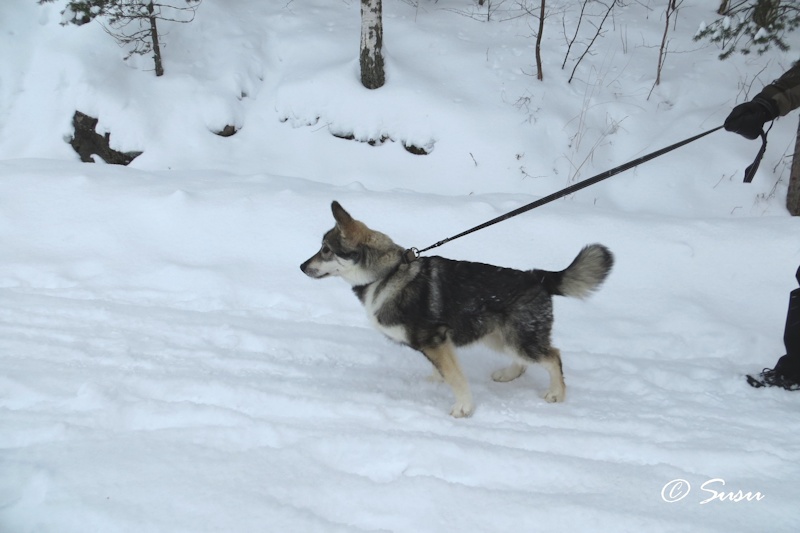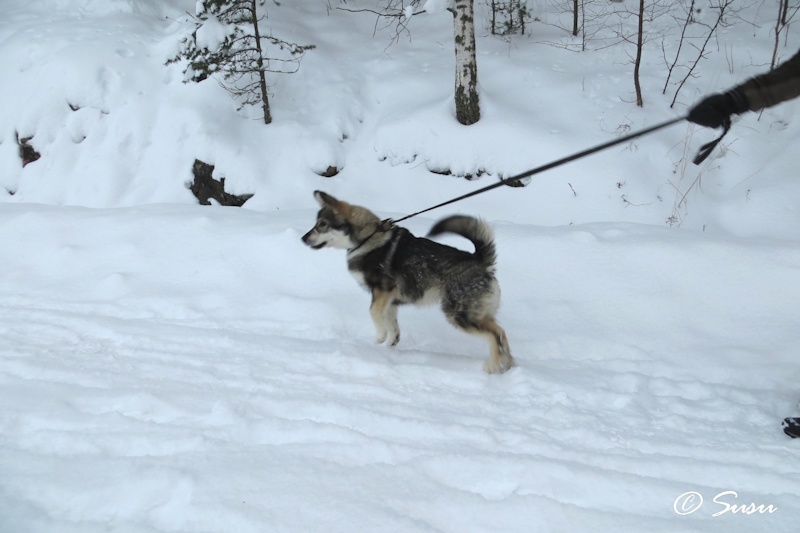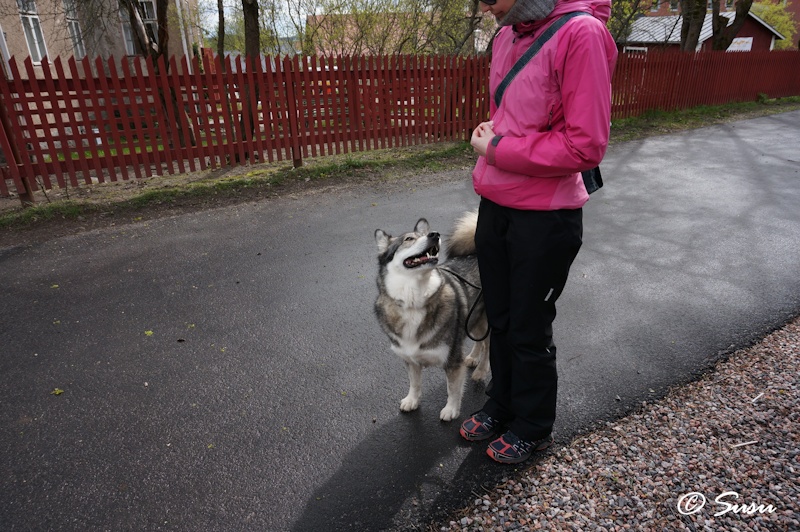I am a Highly Sensitive Person and I have a dog that you’d normally describe as reactive. Because I’m highly sensitive myself, I have very strong intuition and I am an empath, so I can easily see things from a dog’s perspective.
Let’s think about highly sensitive people first. We feel and sense the world around us differently than other people because of our different nervous system. Our minds are filled with different sounds, movement around us, lights, colours, textures, smells and even with the moods of other people around us.
Every HSP is different and we can tolerate things mentioned above different periods of time. But what is common, is that all of a sudden we notice that our tolerance is full and we need to get out of that current situation and fast - everything is suddenly just too much.
If I can’t escape from a situation it will drain all of my energy in just seconds and I might get angry about the stimulus overload. At this point anyone who comes to me might get to feel my anger.
Now let’s think about reactive dogs.
You walk with your dog and you pass nicely some calm dogs. Then somebody walks towards you with an overexcited dog pulling on the leash. The moment your dog sees them, you know it’s like game over. There’s just nothing you can do as your dog starts to growl, bark, and lunge on the leash. After this episode you can’t pass any other dog calmly no matter how calm or friendly they are. You might agree that your dog’s tolerance has just run out and now on everything is just too much for your dog to handle.
I think tolerance as a bucket. All the things happening around us fills the bucket little by little and if something massive happens the bucket floods over at once. I think that HSPs and reactive dogs have a small bucket - as other people’s and dogs’ buckets are sized rather like swimming pools.
So what can or should you do?
When I notice my bucket is about to fill I try to leave the situation. However the most important thing is not to get involved in those situations, or if they are non-avoidable I try to plan them ahead so that I can live through them without the stimulus overload.
Most likely you walk your reactive dog on a leash. As the dog is leashed, he can’t avoid oncoming dogs, skate boarders, cyclists or small energetic children that he is lead towards. At this point the best thing you can do is learn dog body language, so your dog can tell you (you understand when your dog tells you) when he’s had enough and needs to leave the situation.
If you don’t understand your dog’s need to leave, the only thing the poor thing can do is to try banish the oncomers by any means - barking, showing teeth, growling, snapping the air and lunging on the leash. This behaviour is rewarding for the dog because eventually the oncomers will pass you and go away.
When you understand your dog, you can avoid situations that are too overwhelming for him and practise some fun escape games beforehand. When the escapes and exits are fun for your dog he will eventually start to stress less when he sees oncoming dogs, knowing he can get out if he needs to and he will start look at you for the fun games or treats at the second he sees other dogs.
In my experience the reasons for the (bad) behaviour on reactive dogs – and for me as well – comes from too overwhelming and stimulated environment. Are reactive dogs just highly sensitive? What do you think?
In the pictures below Miki is about 6 months old and he’s lunging on the leash trying to banish an oncoming dog. At that time I still believed in the pack leader method and as you can see the correcting and scolding wasn’t efficient. In fact it was useless and made the experience for Miki even worse.


Nowadays I train only with positive methods such as rewarding right behaviours and the aggressive behaviours have vanished almost completely.

2016-08-08